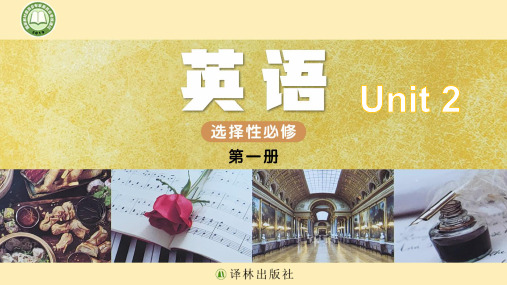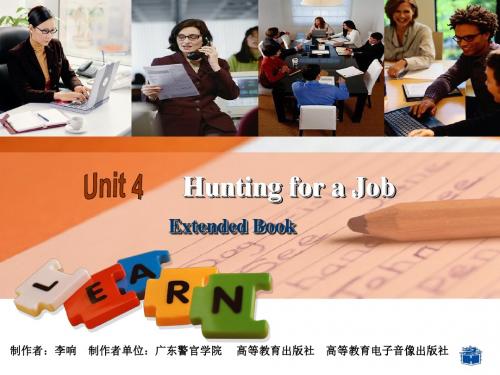unit 2-Extended Book
- 格式:ppt
- 大小:1.70 MB
- 文档页数:21

2020新译林版新教材⾼中英语必修⼀unit2第⼆单元课⽂及翻译(附课本练习答案)Book 1 Unit 2ReadingWhen teenagers’ bodies and minds go through a period of rapid development, every part of their lives can be influenced. The magazine article below is about teenagers’ relationships with their parents. Before you read the article, think about the following questions:What physical and mental changes do you experience as you become a teenager How do you deal with themWhat do you think “strangers under the same roof” meansStrangers under the same roof?Does every dinner with your parents seem to turn into a battle? Have your once warm and open conversations become cold and guarded? Do you feel that you just cannot see eye to eye with them on anything? You are not alone. Heated arguments and cold silences are common between teenagers and their parents.Teenagers’ physical changes may result in such family tensions. You may feel anxious that you are developing at a different rate to your friends, shooting up in height or getting left far behind. You might worry about your changing voice, weight problems or spots. When it all gets too much, your parents are often the first targets of your anger.It can be a big headache to balance your developing mental needs too. You enter a strange middle ground— 5 10 15 Reading 17 no longer a small child but not quite an adult. You have both a new desire for independence and a continued need for your parents’ love and support. You feel ready to be more responsible and make decisions on your own. Unfortunately, your parents do not always agree and that makes you feel unhappy. “Why can’t they just let me go?” you may wonder. On the other hand, when you are struggling to control your feelings, you wish they could be more caring and patient —sometimes they forget that growing up is a rough ride. It can be difficult when your parents treat you like a child but expect you to act like an adult. All of this can lead to a breakdown in your relationship.Although sometimes it may seem impossible to get along as a family, you can take action to improve the situation. The key to keeping the peace is regular and honest communication. When you disagree with your parents, take a minute to calm down and try to understand the situation from their point of view. Perhaps they have experienced something similar and do not want you to go through the same pain. After you have thought it through, explain your actions and feelings calmly, listencarefully, and address their concerns. Through this kind of healthy discussion, youwill learn when to back down and when to ask your parents to relax their control.Just remember that it is completely normal to struggle with the stress thatparent-child tensions create, and that you and your parents can work together to improve your relationship. The good news is that this stormy period will not last. Everything will turn out all right in the end, and the changes and challenges of your teenage years will prepare you for adulthood.Extended readingRead the short story about a mother’s love for her children.Mama and her bank accountEvery Saturday night Mama would sit down by the kitchen table and count out the money Papa had brought home.“For the rent.” Mama would count out the big silver pieces.“For the groceries.” Another group of coins.“I’ll need a notebook.” That would be my sister Christine, my brother Nels or me.Mama would put one or two coins to the side. We would watch with anxious interest. At last, Papa would ask, “Is that all?”And when Mama nodded, we could relax a little. Mama would look up and smile, “Good. We do not have to go to the Bank.”We were all so proud of Mama’s Bank Account. It gave us such a warm, secure feeling.When Nels graduated from grammar school, he wanted to go on to high school. “It will cost a little money,” he said.Eagerly we gathered around the table. I took down a box and laid it carefully in front of Mama. This was the “Little Bank”. It was used for sudden emergencies, such as the time when Christine broke her arm and had to be taken to a doctor.Nels listed the costs of the things he would need. Mama counted out the money in the Little Bank. There was not enough.“We do not want to go to the Bank,” she reminded. We all shook our heads.“I will work in Dillon’s grocery after school,” Nels volunteered.Mama gave him a bright smile and wrote down a number. “That’s not enough,” Papa said. Then he took his pipe out of his mouth and looked at it for a long time. “I will give up smoking,” he said suddenly.Mama reached across the table and touched Papa’s arm. Then she wrote down another figure.“I will look after the Elvington children every Friday night,” I said. “Christine can help me.”Now there was enough money. We all felt very good because we did not have to go downtown and draw money out of Mama’s Bank Account. So many things came out of the Little Bank that year: Christine’s dress for the school play, my little sister Dagmar’s operation ... Whatever happened, we always knew we still had the Bank to depend upon.That was twenty years ago.Last year I sold my first story. When the check came, I hurried over to Mama’s and put it in her lap. “For you,” I said, “to put in your Bank Account.”I noticed for the first time how old Mama and Papa looked. Papa seemed shorter, and Mama’s hair was silver now.“Tomorrow,” I told Mama, “you must take it to the Bank.”“You will go with me, Katrin?”“That won’t be necessary. Just hand it to the teller. He’ll pay it into your account.” Mama looked at me. “There is no account,”she said. “In all my life, I’ve never been inside a bank.”And when I didn’t—couldn’t—answer, Mama said seriously, “It is not good for little ones to be afraid—to not feel secure.”(Adapted from Kathryn Forbes’s Mama’s Bank Account, which has 17 short stories and describes the struggles and dreams of a family in San Francisco in the early 1900s)TranslationUnit 2Reading最熟悉的陌⽣⼈?每天的家庭晚餐幻化成激烈战⽃?热情开朗的谈话蜕变成冷淡警惕?⽆论什么事情都夏⾍语冰?其实⼤家都⼀样。





Book3 U2核心重点单词讲解1. contribution n.贡献;捐款(赠);投稿, 稿件make a contribution/contributions to 为….…做贡献contribute v. 捐献,贡献;造成;投稿contribute to (doing)sth导致…;向…投稿;有助于…contributor n.捐款人,捐助者contributory adj.促成的,起作用的eg. 1) He has made great contributions to the space development program.他对太空发展计划做出了巨大贡献。
2) Eating too much fat can contribute to heart disease and cause high blood pressure.摄入太多的脂肪会导致心脏病和高血压的发生。
2.relief n. 减轻;宽慰;救济物to one’s relief 使某人欣慰的是relief supplies 救济物资in/with relief 如释重负,松了口气relieve v. 缓解,解除,给...换班relieve one’s tension 缓解压力relieve her of her bag 接过她的包relieved adj. 感到宽慰/欣慰的be relieved to see/hear... 看到/听到...感到宽慰Eg. 1)Not until we succeed in letting wildlife live in peace can wen smile in relief.直到我们成功让于野生动植物平静地生活,我们才能如释重负地笑开颜。
2)His anxiety was relieved after the long talk with the teacher.与老师长谈后,他的焦虑减轻了。